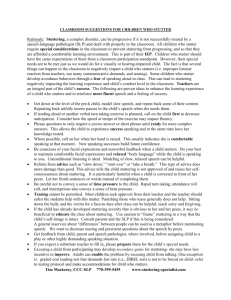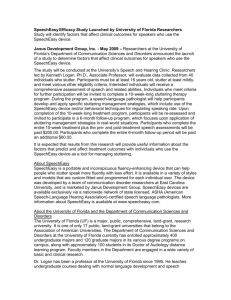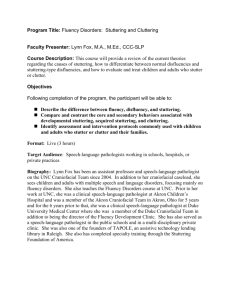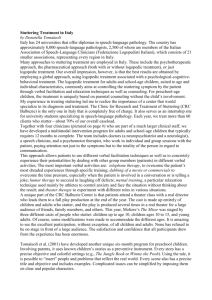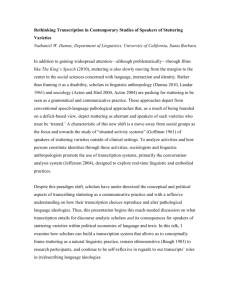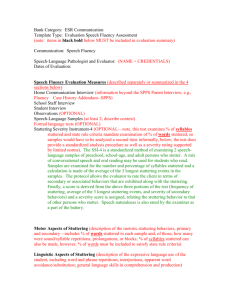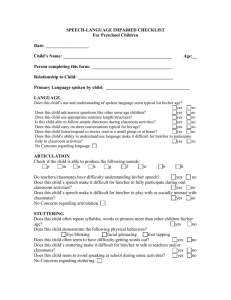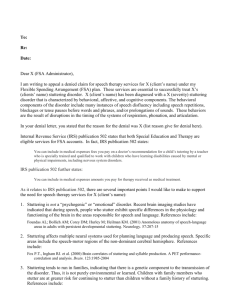press release
advertisement
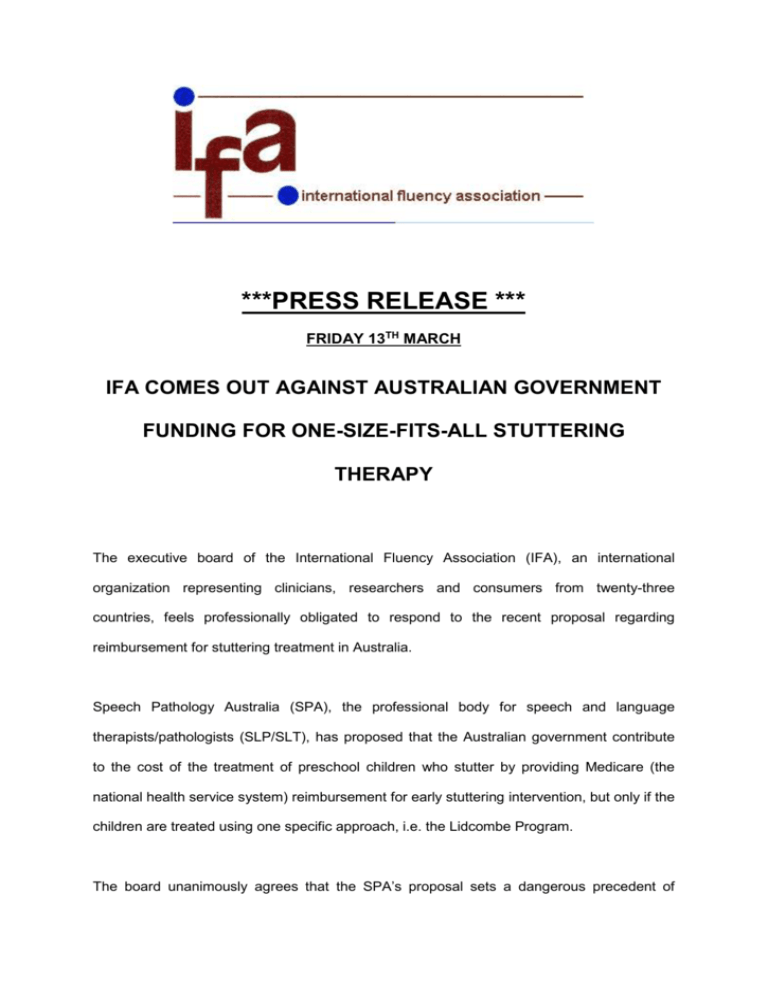
***PRESS RELEASE *** FRIDAY 13TH MARCH IFA COMES OUT AGAINST AUSTRALIAN GOVERNMENT FUNDING FOR ONE-SIZE-FITS-ALL STUTTERING THERAPY The executive board of the International Fluency Association (IFA), an international organization representing clinicians, researchers and consumers from twenty-three countries, feels professionally obligated to respond to the recent proposal regarding reimbursement for stuttering treatment in Australia. Speech Pathology Australia (SPA), the professional body for speech and language therapists/pathologists (SLP/SLT), has proposed that the Australian government contribute to the cost of the treatment of preschool children who stutter by providing Medicare (the national health service system) reimbursement for early stuttering intervention, but only if the children are treated using one specific approach, i.e. the Lidcombe Program. The board unanimously agrees that the SPA’s proposal sets a dangerous precedent of allowing reimbursable health care services for only a single clinical treatment option. Responding to the report, the President of the IFA, Elaine Kelman, said: “We commend the Australian government for recognizing that early intervention for stuttering is a critical benefit to Australia’s stuttering children and their families. However, we cannot condone a proposal that ignores two of the three principles of evidence-based practice. Like our colleagues in SPA, the IFA agrees that treatments for communication disorders need to be evidence-based. We want to remind decision-makers that evidence based practice consists of three critical elements – the empirical evidence for an approach, the therapist’s expertise and the client’s values and needs. The current proposal ignores the latter two pillars of this crucial triad.” “We suggest that the proposal extend coverage to children presenting with the disorder (childhood stuttering), rather than to specific therapies. Doing so will ensure that Australian children who stutter receive the best standard of care relevant to their individual needs.” “While the IFA welcomes initiatives that provide reimbursement for SLP/ST therapy services to children and adults who stutter, we are dismayed that this proposal, if instituted, will deny access to many possible evidence-based approaches for early childhood stuttering.” Early intervention is highly effective (Bloodstein & Bernstein Ratner, 2008); a government initiative that would only fund a single therapeutic approach is as misguided in the treatment of stuttering, as it would be in any area of medicine and rehabilitation. Families and therapists must have the flexibility to choose what is the most appropriate for the child’s needs and the family’s values. The Australian proposal limits the choices available to children who stutter, with the likely consequence that some of them will not receive appropriate treatment. The IFA celebrate initiatives that extend services to the population seek to serve, but these services must be tailored to clients’ individual needs and preferences. Media enquiries: please email Elaine Kelman on ifa_president@theifa.com or telephone 00 44 2033168100 or 00 44 7595938972 for further information. Notes to Editors 1. The International Fluency Association is a not-for-profit, international, interdisciplinary organization devoted to the understanding and management of fluency disorders and to the improvement in the quality of life for persons with fluency disorder. 2. Stuttering or stammering is a neurodevelopmental disorder of communication, which usually starts in the pre-school years. It may feature sound and word repetitions, prolongations and blocking, with associated tension and facial and body movements. Stuttering may also be a hidden disorder, resulting in the individual avoiding words or avoiding speaking situations. Five percent of children go through a period of stuttering. Early intervention is highly effective. Left untreated, stuttering may affect a child’s social and emotional wellbeing, impacting academic achievement and longerterm career and life choices. 3. Famous people who stutter or stuttered: King George VI; Winston Churchill; Marilyn Monroe; Emily Blunt; Samuel L Jackson; Joe Biden.

